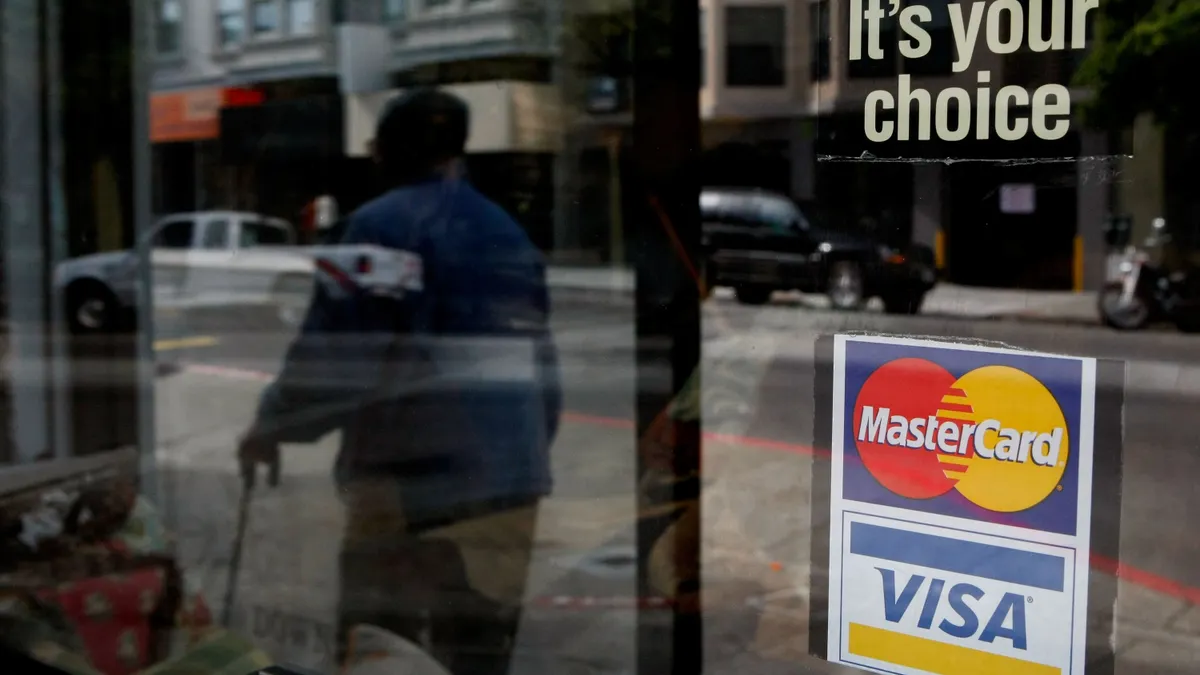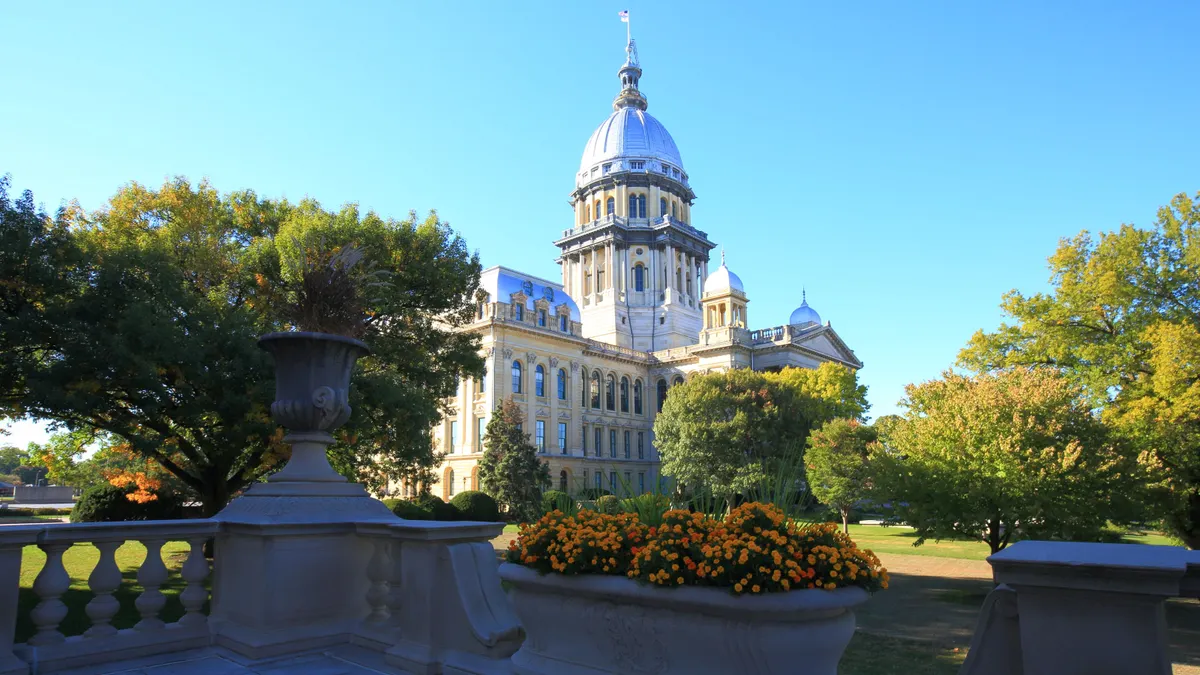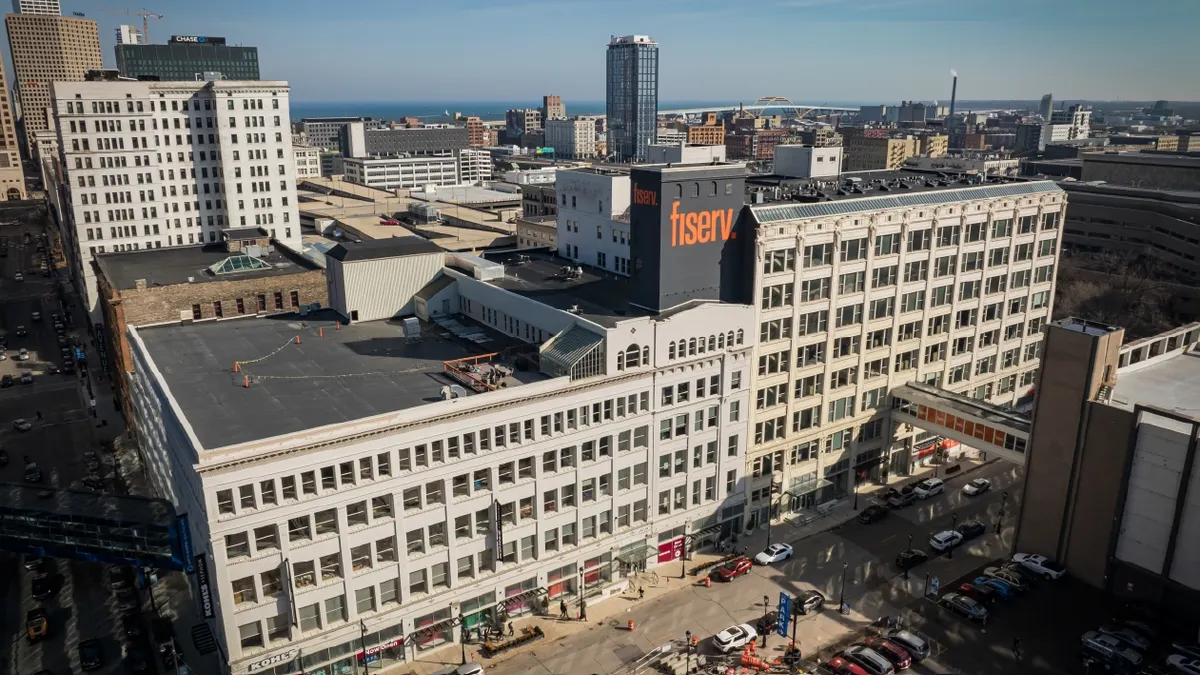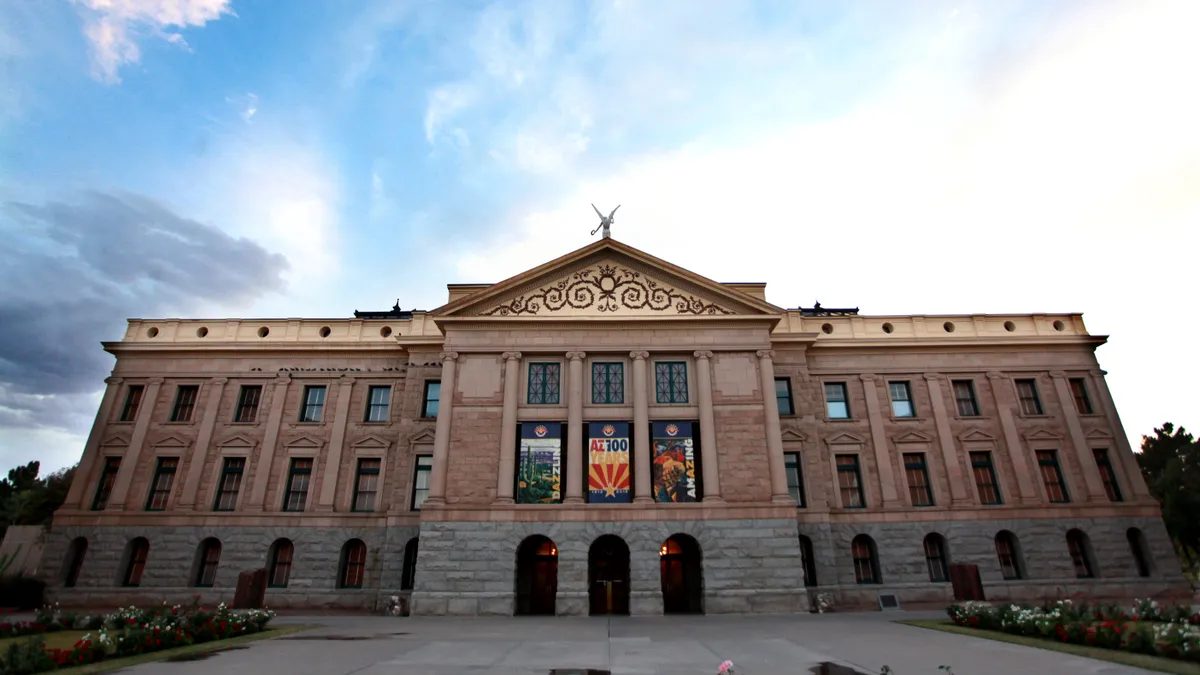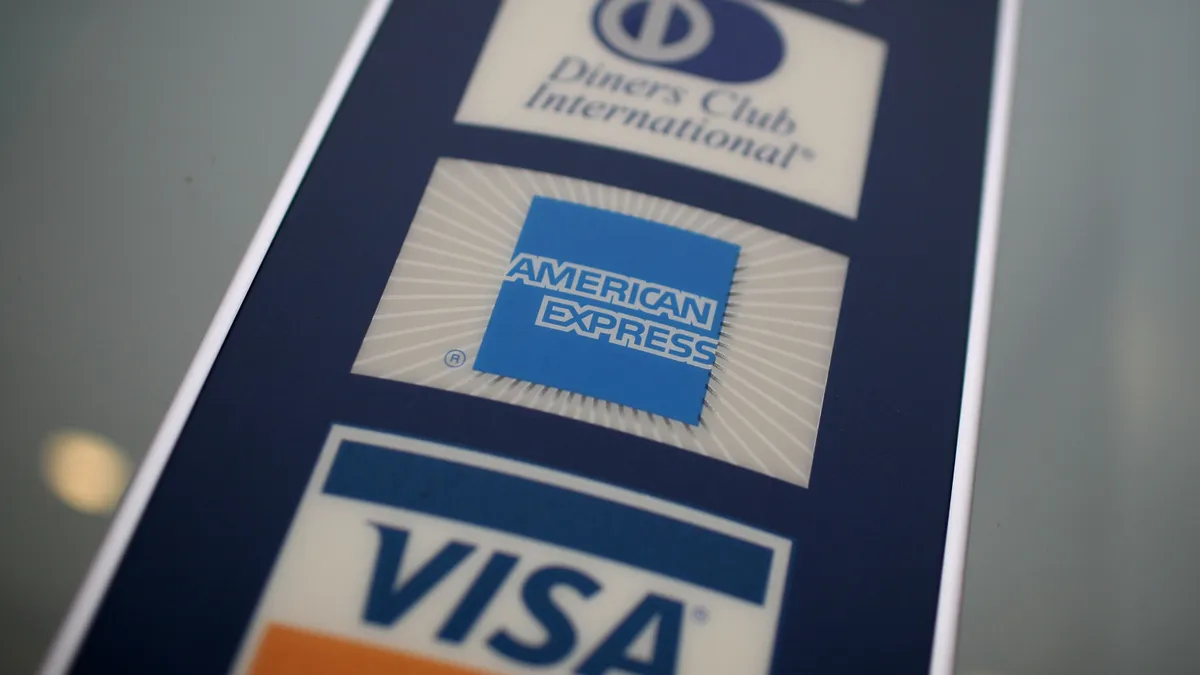Visa and Mastercard have agreed to end their longstanding “honor all cards” rule and temporarily lower interchange fees as part of a settlement agreement announced Monday that could conclude 20 years of litigation over how much merchants pay the card networks and banks.
Under the proposed settlement, merchants will have the right to decline some higher-cost Visa and Mastercard-branded credit cards and will gain new rights to add surcharges for accepting some cards.
The agreement would temporarily cap posted credit interchange rates for five years, including keeping rates for standard consumer cards at 1.25% through the pact's eight-year term, starting with the court's approval. Visa and Mastercard said the settlement also would lower the “combined average effective credit interchange rate by ten basis points” for five years.
A scuttled agreement from 2024 would have reduced fee rates by seven basis points for five years.
The new settlement also calls for a $21 million “merchant education program” to inform the merchants about payment acceptance and cost management.
“After more than 20 years of litigation, Visa and Mastercard have reached a proposed settlement with U.S. merchants of all sizes that would provide meaningful relief, more flexibility and options to control how they accept payments from their customers,” Visa said Monday in an emailed statement.
Mastercard said the proposal will benefit smaller merchants, highlighting a critical reason that a federal judge rejected a prior settlement in June 2024. U.S. District Judge Margo Brodie ruled that that deal did not treat all merchants within the class equitably in terms of their rights to impose surcharges.
The agreement “is the best resolution for all parties, delivering the clarity, flexibility and consumer protections that were sought in this effort,” Mastercard said in a statement. “Smaller merchants will gain in this settlement – more acceptance choices, reduced costs and simplified rules.”
The National Association of Convenience Stores criticized the deal as “more smoke and mirrors” in a statement Sunday.
“This proposed settlement endorses business as usual, including by letting Visa and Mastercard increase their own fees without any restraints,” said Lyle Beckwith, the association’s senior vice president of government relations. “That could erase the benefits that this settlement pretends to provide.”
The settlement is subject to approval by Brian Cogan, a federal judge in the Eastern District of New York. Any approval would “occur most likely in late 2026 or early 2027,” Mastercard said Monday in a securities filing.
The marathon class action began in 2005 when merchants sued Visa and Mastercard over alleged antitrust violations with respect to the interchange rates that retailers, restaurateurs and other merchants pay when they accept Visa or Mastercard credit card payments from consumers.
Retailers, including the mega chain Walmart, have been seeking alternatives for years to what they say are the high interchange cost of accepting credit cards.
Under the networks’ “honor all cards” rule, any merchant who chooses to accept a card tied to the Visa or Mastercard network must accept all cards tied to that network, regardless of which bank issued the card or how much interchange fee a card carries.
The rule has meant that a merchant couldn’t refuse a card with a pricier interchange, such as the numerous higher-fee cards that offer consumers travel or hotel loyalty program rewards. Nor could they usually add surcharges for payments with a card that carries a higher interchange cost.
The ability to impose surcharges for higher-fee cards and to decline some costly Visa and Mastercard-branded cards were two key objectives for merchants, Lloyd Constantine, a New York attorney who represents about 40 of the plaintiffs, said in a June interview.
About 30 merchants across three plaintiff groups had previously reached independent settlements, including tech giant Amazon, as well as retailers Costco Wholesale and Lowe’s.
The Electronic Payments Coalition, which counts card networks as well as banks and credit unions among its members, supports the latest legal accord. The coalition’s CEO, Richard Hunt, noted that some financial institutions may not be happy with the agreement, given the merchants’ new leeway on which cards they can accept.
“Not everyone in the financial services industry is happy with this agreement which means it’s a good agreement,” he said in a Monday interview.
Still, he noted that the agreement is preferable to any solution from the federal government, which has been threatened in the form of a bill known as the Credit Card Competition Act that was introduced in prior congressional sessions.
Hunt contended that a key benefit of the pact for merchants is allowing more flexibility with respect to surcharging.
Big merchant trade groups, including the National Retail Federation and the Merchant Payments Coalition, criticized the settlement as unsatisfactory.
“This is a bad deal,” said Doug Kantor, who is general counsel for the National Association of Convenience Stores as well as an executive committee member for the Merchants Payments Coalition. “It’s not much different than the deal last year that the judge threw out,” he said in a Monday interview.
Kantor contended that many standard, non-premium cards already have interchange rates lower than the 1.25% cap. Generally, the card networks will still be able to revise their fees to offset any reductions dictated by the agreement, he said.
Overall, he argued that the banks still won’t have sufficient incentive to compete in the credit card marketplace under the new settlement.
Visa and Mastercard faced two trials next year that would have pit the networks against three groups of merchants that had sued over the card swipe fees. The first was scheduled for April 2026 in New York, with a second trial that was set for September in Chicago by a second group, led by delivery service GrubHub.
The proposed settlement speaks to the arms race nature of a new breed of premium, costly cards from banks such as JPMorgan Chase, Capital One Financial and Citigroup that offer an array of enhanced travel and dining perks for affluent customers. Such premium cards carry higher interchange rates, pressuring merchants’ profits.
In September, American Express boosted the annual fee for its Platinum card to $895, months after Chase hiked its Visa-branded Sapphire Reserve card to $795.
The Wall Street Journal reported news Saturday of a pending settlement between the networks and merchants.
Spokespeople for JPMorgan Chase, the biggest U.S. bank, and Wells Fargo declined to comment. Capital One Financial did not respond to an email seeking comment.


